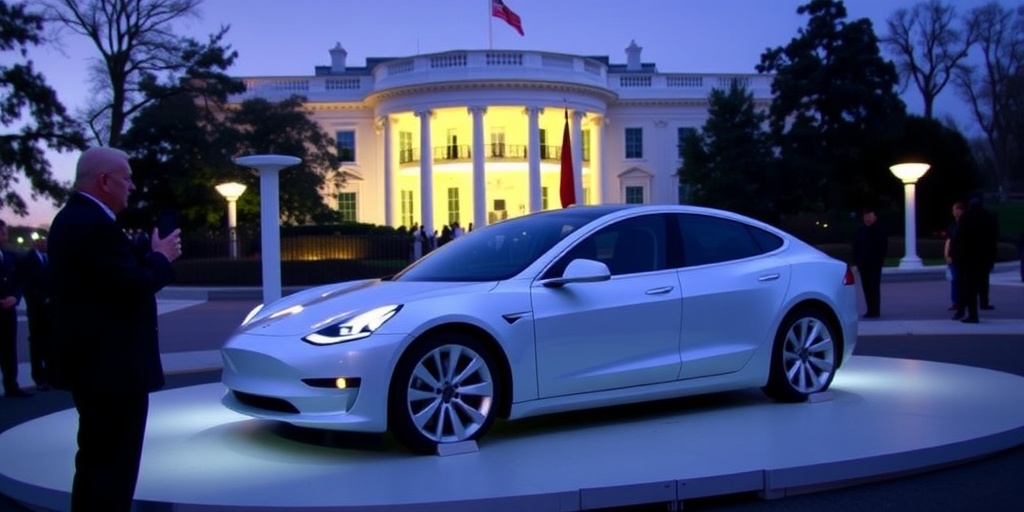Now Reading: DOGE’s Latest Errors Become More Elusive
-
01
DOGE’s Latest Errors Become More Elusive
DOGE’s Latest Errors Become More Elusive

Elon Musk’s Department of Government Efficiency Faces Scrutiny Over Claims of Taxpayer Savings
Elon Musk’s newly formed Department of Government Efficiency (DOGE) has found itself embroiled in controversy due to its alleged inaccuracies in reporting the savings it claims to achieve for taxpayers. Following a series of investigative reports that highlighted these discrepancies, the department has reportedly adjusted its approach, leading to a significant reduction in transparency regarding its activities and claims.
In a recent update posted on its website on March 2, DOGE announced that it had saved taxpayers an impressive $10 billion through the termination of 3,489 federal grants. Previously, the department provided specific information on the grants it canceled, which allowed for public verification of its claims by cross-referencing federal spending databases and speaking with the organizations affected by funding cuts. This transparency was a key part of Musk’s pledge for DOGE, emphasizing an intention to operate in the open and accountable to the public.
However, this time around, critical details were conspicuously absent. A White House official indicated that the omission was driven by security concerns, making it nearly impossible for the public to independently verify DOGE’s assertions. An initial investigation by The New York Times inadvertently uncovered some method of verification when the federal identification numbers for certain grants were embedded within the website’s source code. However, when the Times utilized this information to match DOGE’s claims with official records, they identified the same errors that had plagued previous releases.
As pressure mounted from various media reports, DOGE quickly removed these identifiers from the source code and later published claims that could not be verified at all. This marked a significant regression from Musk’s earlier commitment to “maximal transparency,” as the group’s accounting now presents a challenge for fact-checkers and watchdog organizations alike.
Despite the website offering some insight into the department’s declared savings — which as of Wednesday totaled $115 billion — it has only provided a partial view of claims, raising concerns about its reliability and credibility. As Noah Bookbinder, president of the left-leaning watchdog Citizens for Responsibility and Ethics in Washington, noted, “They responded by giving less information publicly, so that it’s harder to question them.” This shift suggests a failure to address the previous errors and a reluctance to improve or learn from the past.
Musk’s DOGE had initially begun posting its so-called “wall of receipts” in mid-February, detailing savings accrued from federal contract cancellations. Unfortunately, these announcements also contained inaccuracies, including instances of confusing millions with billions, and mistakenly taking credit for contracts that had been discontinued long before Musk took office — in some cases dating back to President George W. Bush’s administration.
Despite subsequent deletions of many inflated claims after public scrutiny, numerous errors remained. For instance, one erroneous entry continued to credit DOGE with saving $1.9 billion through the cancellation of an Internal Revenue Service contract that was actually terminated under President Joseph R. Biden Jr. The group has neither clarified nor provided reasoning for the repeated changes to its saved amounts.
The recent claims regarding federal grants are particularly concerning. The current information displayed on the DOGE website provides minimal details about each grant, essentially only including the name of the federal agency that issued the grant and the dollar amount saved. This lack of specific information results in substantial ambiguity, as the source code, at one point, previously listed identifying details for each terminated grant. However, these identifiers were subsequently removed, leading to further difficulties for those attempting to verify the claims.
Allegations have emerged that many of the largest savings reported by the department are grossly exaggerated. For instance, the most substantial claim involved purported savings of $1.75 billion stemming from a grant from the U.S. Agency for International Development intended for the public-health nonprofit Gavi, the Vaccine Alliance. Gavi has categorically stated that the grant had not been canceled, and all promised payments had already been fulfilled, which would effectively mean that any claimed savings would be nonexistent.
Further complicating matters, many nonprofits stated that the actual governmental contributions they receive often fall far short of the maximum amounts cited by DOGE. The upper limits of grants, they explained, do not guarantee any funds will be allocated.
A striking example involves EngenderHealth, which was reportedly credited with $83.6 million in savings from a terminated family-planning grant. EngenderHealth’s CEO pointed out that DOGE had misrepresented the grant’s ceiling value as a firm commitment, when, in fact, it represented a potential maximum that the organization had not yet received.
As claims of savings continue to grow, with the list of terminated grants recently increasing to 7,488 and relating to over $17 billion in purported savings, questions about DOGE’s accuracy and accountability persist. Many industry leaders and transparency advocates are calling for more detailed explanations behind the claimed cuts, questioning why a group promising to enact overdue reforms would not want to showcase their accomplishments clearly.
In summary, the pattern of obfuscation, inaccuracies, and shortcomings in accountability displayed by Elon Musk’s Department of Government Efficiency raises significant concerns about its effectiveness and credibility as it seeks to reshape government spending. The lack of verifiable data not only undermines public trust but also complicates the intricate landscape of government funding and its beneficiaries.
Stay Informed With the Latest & Most Important News
Previous Post
Next Post
-
 01New technology breakthrough has everyone talking right now
01New technology breakthrough has everyone talking right now -
 02Unbelievable life hack everyone needs to try today
02Unbelievable life hack everyone needs to try today -
 03Fascinating discovery found buried deep beneath the ocean
03Fascinating discovery found buried deep beneath the ocean -
 04Man invents genius device that solves everyday problems
04Man invents genius device that solves everyday problems -
 05Shocking discovery that changes what we know forever
05Shocking discovery that changes what we know forever -
 06Internet goes wild over celebrity’s unexpected fashion choice
06Internet goes wild over celebrity’s unexpected fashion choice -
 07Rare animal sighting stuns scientists and wildlife lovers
07Rare animal sighting stuns scientists and wildlife lovers





















